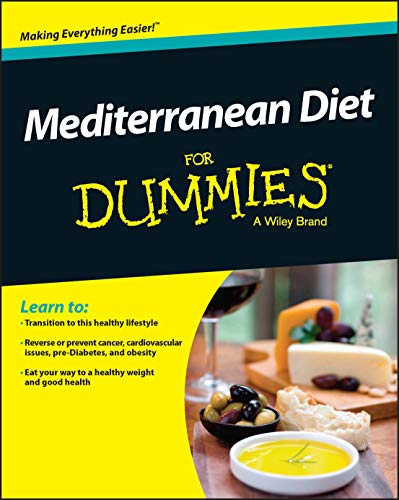The Mediterranean diet is a well-known eating plan that promotes heart health.
It is not just a diet, but a lifestyle that incorporates the traditional flavors and cooking methods of the Mediterranean region. The diet has been extensively studied and has been shown to have several benefits for cardiovascular health.
One of the reasons the Mediterranean diet is recommended for heart health is because it has been associated with lower risk factors for heart disease, such as high cholesterol and high blood pressure. Observations from a study in the 1960s found that cardiovascular disease was less prevalent in Mediterranean countries compared to the United States and northern Europe. This led to further research on the Mediterranean diet and its potential benefits for heart health.
The Mediterranean diet is primarily plant-based, with a focus on vegetables, fruits, whole grains, beans, nuts, and seeds.
These plant foods are rich in nutrients, fiber, and antioxidants that are beneficial for cardiovascular health. The diet also includes moderate amounts of dairy products, poultry, eggs, and seafood. Red meat is consumed sparingly, and foods with added sugar are limited. The diet emphasizes the use of herbs and spices for seasoning rather than relying on excessive salt consumption.
One of the key components of the Mediterranean diet is the use of healthy fats, particularly unsaturated fats.
Olive oil and nuts are the main sources of fat in this diet, providing unsaturated fats that can help lower levels of total cholesterol and LDL cholesterol, also known as "bad" cholesterol. Studies have shown that replacing saturated fat with polyunsaturated fat, which is found in fish, seeds, nuts, legumes, and some vegetable oils, can lower the risk of cardiovascular disease events and death related to cardiovascular disease.
Fish is a crucial part of the Mediterranean diet, as it is a source of omega-3 fatty acids.
Omega-3s are unsaturated fats that have anti-inflammatory properties and can help reduce blood fats called triglycerides. They have also been associated with a lower risk of stroke and heart failure. Fatty fish, such as mackerel, herring, sardines, albacore tuna, salmon, and anchovies, are particularly rich in omega-3s. Lean fish and shellfish are also included in the diet, as long as they are low in mercury.
Moderate consumption of alcohol, particularly red wine, is sometimes included in the Mediterranean diet.
Some studies have suggested that alcohol, when consumed in moderation, may have a lower risk of heart disease. However, recent research has brought this into question, as it has found potential risks associated with even low levels of alcohol consumption. It is important to consider individual health factors and consult with a healthcare provider or dietitian to determine if alcohol consumption is suitable.
To adopt the Mediterranean diet, individuals can focus on incorporating more fruits and vegetables into their meals, choosing whole grains over refined grains, using unsaturated fats from plants, consuming seafood at least twice a week, incorporating nuts into their diet, consuming low-fat dairy products in moderation, reducing red and processed meat intake, and seasoning meals with herbs and spices instead of excessive salt.
The Mediterranean diet is a scientifically-backed and highly recommended eating plan for heart health.
Its emphasis on plant-based foods, healthy fats, and moderate consumption of other food groups has been shown to have numerous benefits for cardiovascular health. By following the Mediterranean diet, individuals can enjoy a delicious and nutritious way of eating that promotes heart health in the long term.
SGD 27.58
SGD 21.36
4.92 out of 5 starsMediterranean Diet Simplified
Discover the key to successful weight loss with this simplified guide to the Mediterranean Diet
Product information
Product Review Score
Product links
The combination of exercise and the Mediterranean diet has numerous benefits for overall health and well-being.
1. Weight management: Regular exercise combined with the Mediterranean diet, which is rich in fruits, vegetables, whole grains, and healthy fats, can help with weight management and maintaining a healthy body weight.
2. Heart health: The Mediterranean diet is known for its heart-healthy benefits, as it includes foods like olive oil, nuts, and fish that are good for cardiovascular health. Exercise further supports heart health by improving circulation and reducing the risk of heart disease.
3. Improved energy levels: Regular physical activity can increase energy levels and reduce feelings of fatigue. When combined with the nutrient-dense foods in the Mediterranean diet, this can lead to sustained energy throughout the day.
4. Mental well-being: Both exercise and the Mediterranean diet have been linked to improved mental health and a reduced risk of depression and anxiety. The combination of the two can have a synergistic effect on overall mood and well-being.
5. Longevity: Studies have shown that following a Mediterranean diet and engaging in regular exercise are associated with a longer lifespan and a reduced risk of chronic diseases such as diabetes, cancer, and Alzheimer's disease.
In conclusion, combining exercise with the Mediterranean diet can have a powerful impact on overall health, leading to better weight management, heart health, energy levels, mental well-being, and longevity.
The Mediterranean diet is a great diet and will help you lose weight. It is recommended to boost weight loss and keep it off. That you also undertake regular exercise. It does not need to be going to the gym. Just everyday, small routines. Get great tips and routines at Home Fitness World












